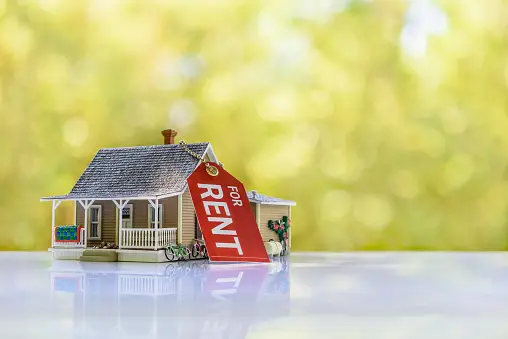The choice between long-term and short-term rentals is a significant decision for property owners. Each option comes with its own set of advantages and disadvantages, and the right choice depends on various factors, including your financial goals, lifestyle, location and property type. In this blog post, we’ll explore the key advantages and disadvantages of long-term and short-term rentals to help you make an informed decision.
Advantages of Long-Term Rentals
- Steady Rental Income: One of the most significant advantages of long-term rentals is the predictability of rental income. With a signed lease agreement, you can count on a consistent monthly income stream, which can be vital for covering your property expenses, such as mortgage payments and maintenance costs.
- Lower Vacancy Rates: Long-term rentals typically experience lower vacancy rates. Once you find a reliable tenant, they are likely to stay for an extended period, reducing the time and effort required for tenant turnover.
- Fewer Administrative Tasks: Managing long-term rentals involves less administrative work. You won’t need to constantly market your property, screen new tenants, or coordinate short-term bookings.
- Less Wear and Tear: Long-term tenants generally cause less wear and tear on your property compared to short-term guests who may come and go frequently.
Disadvantages of Long-Term Rentals:
- Limited Income Potential: Long-term rentals may offer lower nightly rates compared to short-term rentals, which can limit your income potential, especially in high-demand tourist areas.
- Less Flexibility: Once you sign a long-term lease, you have less flexibility to use your property for personal use or make it available for short-term rentals during peak seasons.
- Risk of Problematic Tenants: While long-term rentals provide stability, there’s a risk of getting a problematic tenant who may not pay rent on time or cause property damage.
Short-Term Rentals
Advantages of Short-Term Rentals:
- Higher Rental Income: Short-term rentals often yield higher income per night, especially in popular tourist destinations. You have the potential to earn more during peak seasons.
- Flexibility for Personal Use: Short-term rentals offer more flexibility for personal use of your property. You can block off dates for your own vacations or make your property available for rent when you’re not using it.
- Regular Property Inspection: With short-term rentals, you have the opportunity to regularly inspect and maintain your property between guest stays, ensuring it stays in good condition.
- Opportunity for Rental Growth: You can adjust your rates based on market demand, allowing you to maximize your rental income during high-demand periods.
Disadvantages of Short-Term Rentals
- Higher Management Demands: Managing short-term rentals requires more time and effort. You’ll need to handle guest inquiries, check-ins, cleanings, and maintenance, which can be demanding, especially during peak seasons.
- Income Variability: While short-term rentals offer the potential for higher income, the income can be variable and seasonal. You may experience periods of high occupancy and periods of low occupancy.
- Regulatory Challenges: In some areas, short-term rentals may be subject to stricter regulations, zoning restrictions, or licensing requirements. This can add complexity and compliance costs.
- High Turnover: Short-term rentals often involve frequent turnover of guests, which can lead to more wear and tear on your property.
Whichever route you decide to go with, hiring a property management company can greatly benefit both a landlord’s long-term or short-term rental property, allowing you to experience more of which is listed on the advantages list.
For long-term rentals, property management firms excel in tenant screening, lease enforcement, and property maintenance, ensuring reliable income, reduced vacancy rates, and minimal legal hassles. They also handle day-to-day operations, freeing landlords from time-consuming tasks.
In the realm of short-term rentals, property managers specialize in marketing, guest communication, and cleaning services, optimizing occupancy rates and guest satisfaction. Additionally, their expertise in navigating short-term rental regulations and handling emergency situations provides peace of mind to landlords, promoting the sustainable growth and profitability of their rental investments in both the long and short term.
In conclusion, the choice between long-term and short-term rentals depends on your investment goals, property type, location, and personal preferences. Long-term rentals provide stability and less management effort but may yield lower income. Short-term rentals offer higher income potential but require more active management and come with income variability.
We suggest consulting with a Realtor to get a better sense of the current rental market in your area. Carefully weigh these pros and cons to make the decision that aligns with your specific circumstances and objectives.





